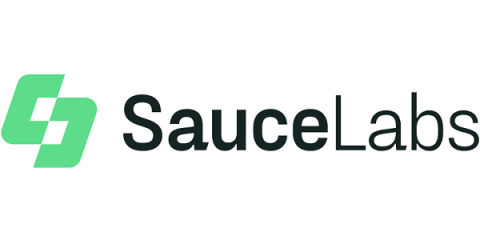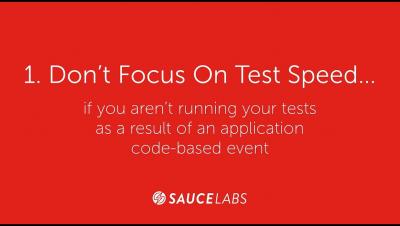Systems | Development | Analytics | API | Testing
Sauce Labs
Mobile Automation Best Practices | Nikolay Advolodkin
Best Practices for Shifting Accessibility Testing Left
QA professionals, testers, and developers are constantly learning new tools, tech stacks, and development practices. When they’re told they have to learn accessibility, it can often feel like an unwelcome and overwhelming disruption, slowing them down and forcing them to test and rewrite what they thought was perfectly good code. The good news is accessibility tools are more tester-friendly than ever.
Three Key Attributes for Successful Test Parallelization
Who Should Be Focusing on Faster Test Results?
How Effective Data Management Can Keep Your Tests Independent
Better Together: Real Devices, Emulators & Simulators for Mobile Testing
Ten years ago I saw a Selenium test that could click on a capital "I" that was one pixel wide. I was not capable of clicking on it myself. Around that time, a lot of people began using phrases like "End to end is further than you think." Simulators and emulators, after all, could not simulate heat, poor memory management, low power, and other problems. Then again, that was ten years ago.
Speeding Up Your Tests
A common complaint that I hear is: “My tests run a lot faster locally than on Sauce Labs.” Sauce Labs is in the cloud and not in your local network, so it makes sense that any given test is going to have some amount of slowdown. The advantage of Sauce Labs is that you can make up this difference by scaling up the number of tests you run at the same time.
SeleniumConf Virtual 2020 Recap
This year the Selenium Conference was held virtually, and despite that, the conference again offered an exciting place for the Selenium community to meet in order to share and learn about the most popular browser automation tool in the world. The conference offered talks about improved testing practices, new tools to simplify the setup of automated tests, the future of Selenium, and lots of learnings from speakers who shared their use cases and practical advice for how they use Selenium at work.









